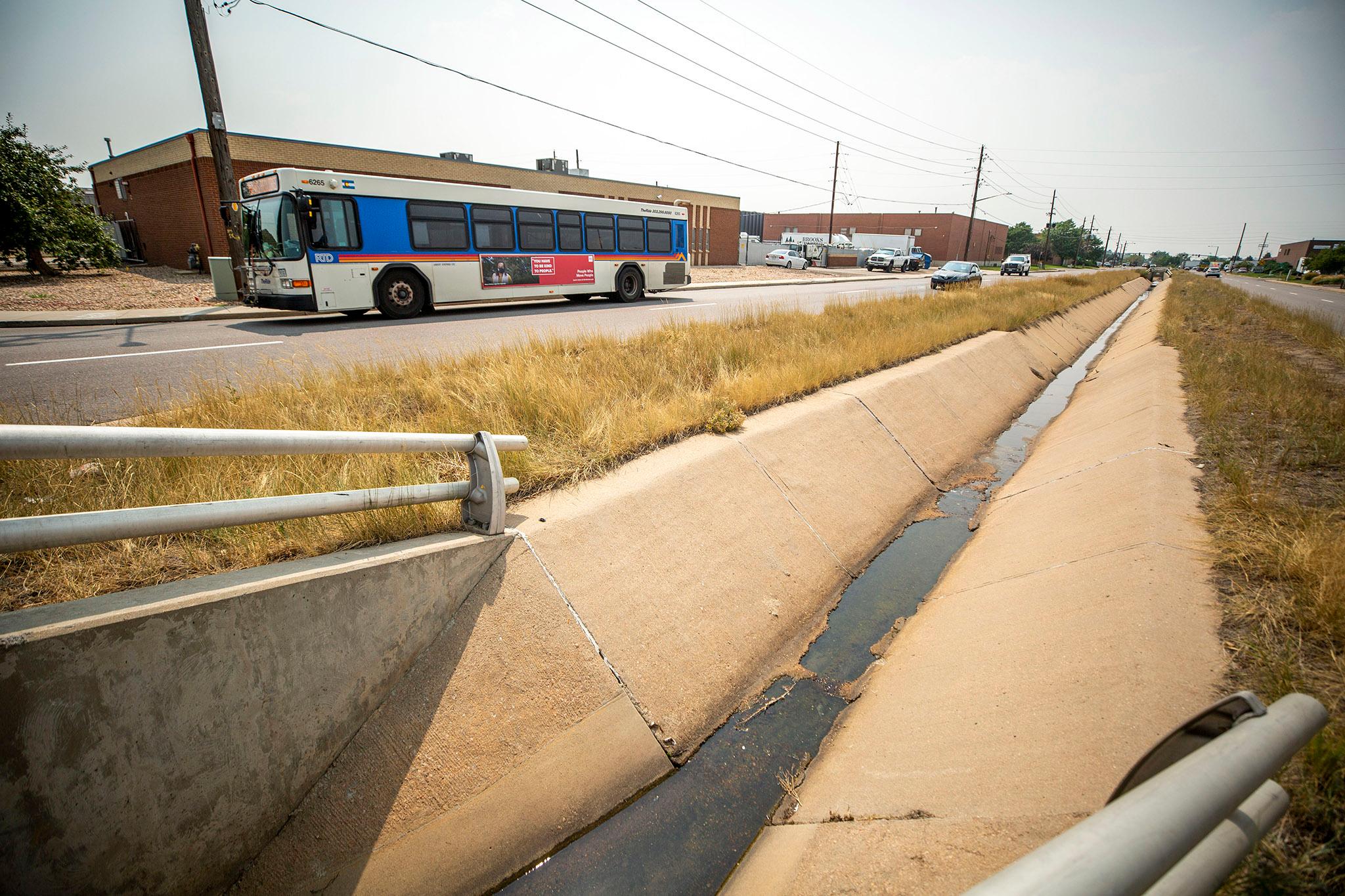The city government will take another stab at providing rides to people who need them.
We are not talking about buses or trains or bikes or scooters. This fleet is three cars -- an electric Chevy Volt, a hybrid Chrysler minivan and a gas-powered Ford van -- to cover 3.5 square miles in Montbello, a neighborhood with a relatively high number of people who depend on transit.
Riders will use an app or call for a ride -- in English or Spanish -- and drivers will scoop them in 30 minutes or less, with a goal of 15 minutes, said Stephen Rijo, a city planner with the Department of Transportation and Infrastructure, who developed the pilot. Assuming demand is high enough, people will share rides and an algorithm will work out the type of vehicle and the route, much like the carpool options offered by Uber and Lyft.
"With the flexibility of it being on-demand, we can sort of meet the people where they need to come and go to," Rijo said.
Unlike Uber and Lyft, this service will be free.
"It's free?! That's the good part right there," said Luis Meza, who was waiting for the R-Line on Tuesday at Peoria Station, which is expected to be a popular pickup and dropoff spot. "Yeah, I would definitely use that. Right now I don't have a car while I'm working out my license."
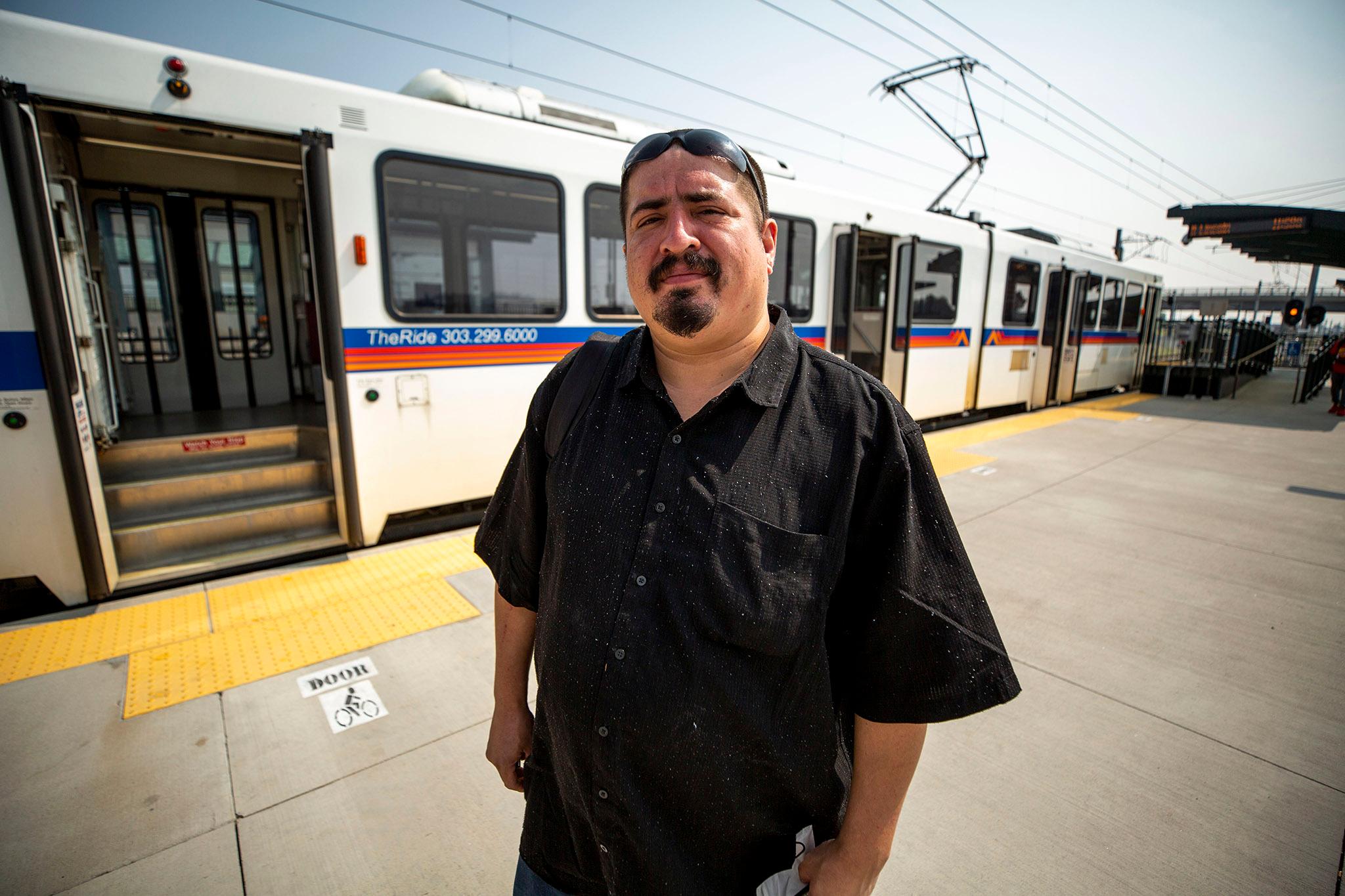
Meza lives in Montbello and said he usually takes the bus to the station to catch a train to work, but would relish Denver's "microtransit" service, as city planners call it, because it would be more dependable than RTD at certain times. The service is slated to run from 6 a.m. to 8 p.m., Monday through Friday.
The city picked Montbello for the $550,000 year-long pilot in the name of equity and because it's hard to get places without owning a car, Rijo said. People of color comprise over 86 percent of the 37,000 residents there, according to census data. The average household in Montbello makes about $20,000 less than the average household in Denver.
Various city plans call for more transportation options in Montbello, where destinations are separated by a sprawling, winding street grid that makes it hard to walk and bike to places, even if they're close as the crow flies. The neighborhood's walking score and transit score are each 40 out of 100, according to Denveright planning documents, but the area has a relatively high number of people who depend on public transport.
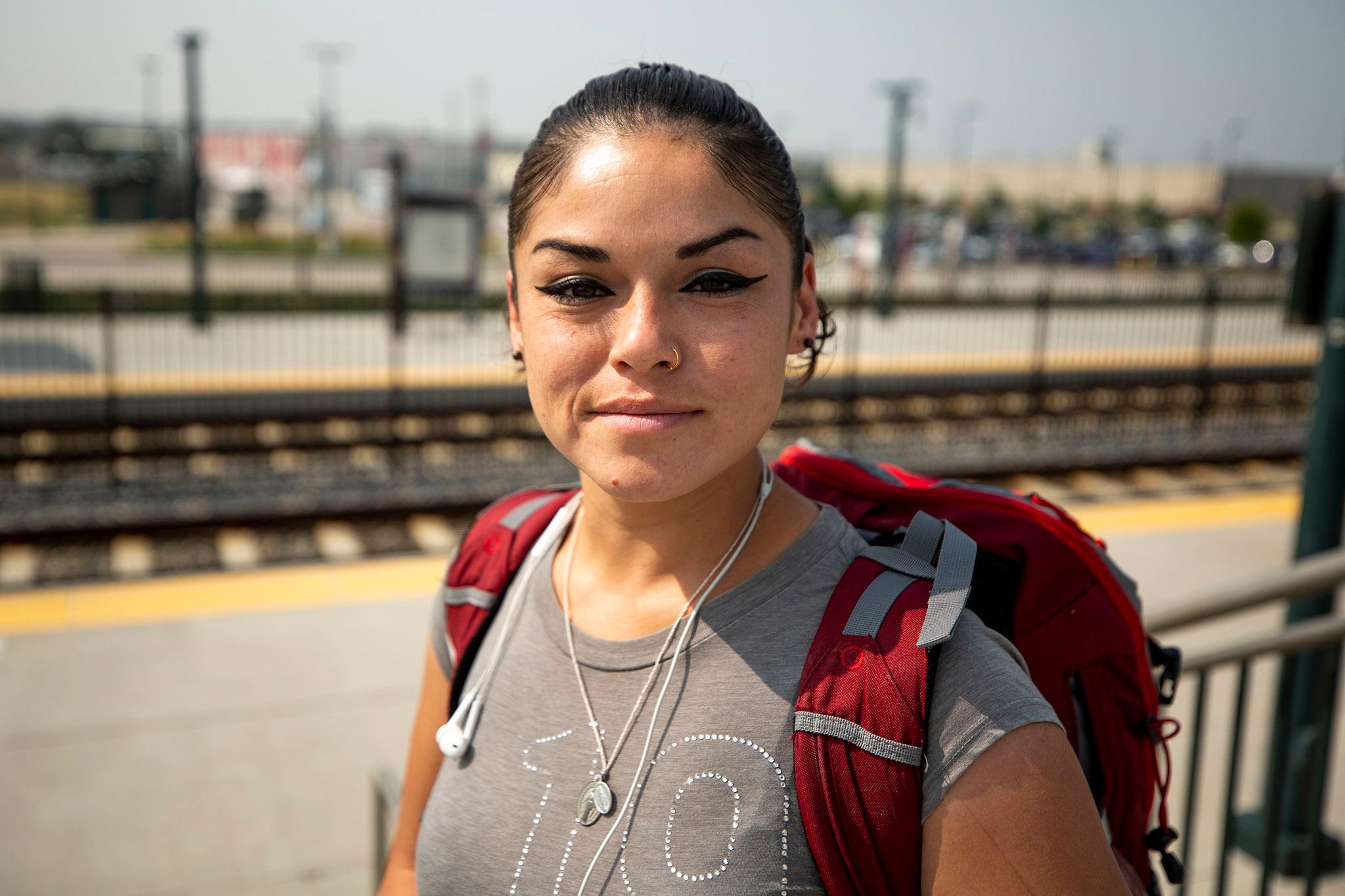
"Honestly, I think it might be a little more efficient, especially for people who are serious about getting where they need to be," said Amanda Alonzo, who was heading from the R-Line to an RTD bus, where she ended up waiting for a while. "Sometimes the bus routes aren't always reliable. They're late or they're a little bit too early. They're not always directly on time, even if for the most part they're pretty consistent."
Anterica Roberts, who relies on RTD to move around the city, loves the idea, too.
"If the train is late and I miss the bus, how am I gonna get to work?" she said with the R-Line screeching in the background. "Then you're sitting here trying to order a Lyft and might not have enough money. You know, you just spent your last few dollars getting on the train."
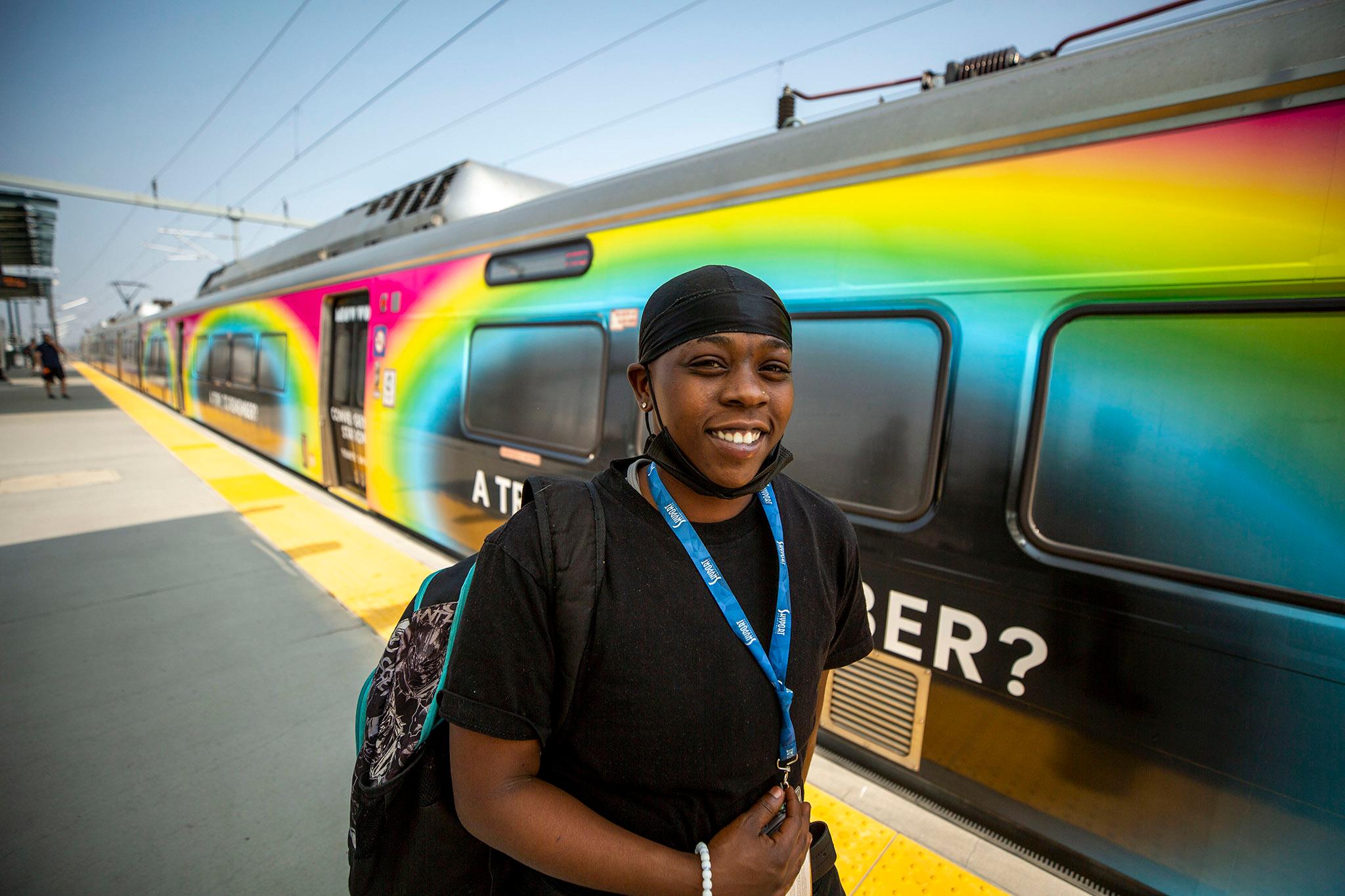
Denver is hoping to meet the needs of young people and older residents in particular, whether the trip is to the rec center or the grocery store.
"Our thought is, there's just so much need, let's get out there and see how we can best serve it," Rijo said.
This type of transportation hasn't proven itself on a macro scale.
Planners picked Montbello after the first attempt at city-run transit in a wealthier, whiter part of the city failed. The contractor, Chariot, was scrapped by Ford, its owner. One report found that the glorified cars were serving just nine people per vehicle per day in New York, though they were on fixed routes and cost $4 per ride.
The Montbello pilot will be successful, said Rijo, if it garners 70 to 110 trips per day. That's 3.5 passengers per vehicle per service hour. Meanwhile, Denver's Climate Action Plan aims to double the percentage of transit trips and significantly cut pollution by 2030. And while no one is claiming this Montbello project is a silver bullet, the goal of the pilot is to help Denver get into the business of transit on a larger scale.
Councilmember Candi CdeBaca said a similar service in Globeville and Elyria Swansea, sponsored by the Colorado Department of Transportation, was successful -- until it ended too abruptly.
Transit planner Jarrett Walker helped consult on Denver's citywide transit strategy and is not sold on the concept (he calls it "flexible transit") in part because it can't compete with the efficiency fixed routes with bus stops to which people walk. Flexible transit is "meandering," he wrote on his blog.
Rijo said the app will tell riders to walk a block or two when necessary, to keep things efficient.
Some transit riders -- and Denver City Council members -- are also skeptical.
Bill Friend loaded his bike onto the front of an RTD bus at Peoria Station and said he wouldn't be able to get free car rides because he doesn't have a phone to summon them, whether from an app or with a land line. Friend lives under a bridge in Montbello and tends to ride his bike most places. He only gets on the bus if he finds a day pass on the ground or if someone gives him one, he said.
Coral Moody, another daily RTD customer, said the city should be investing in mass transit -- not small-scale cars on the roads.
"I'd rather see more rail and buses than more congestion," they said.
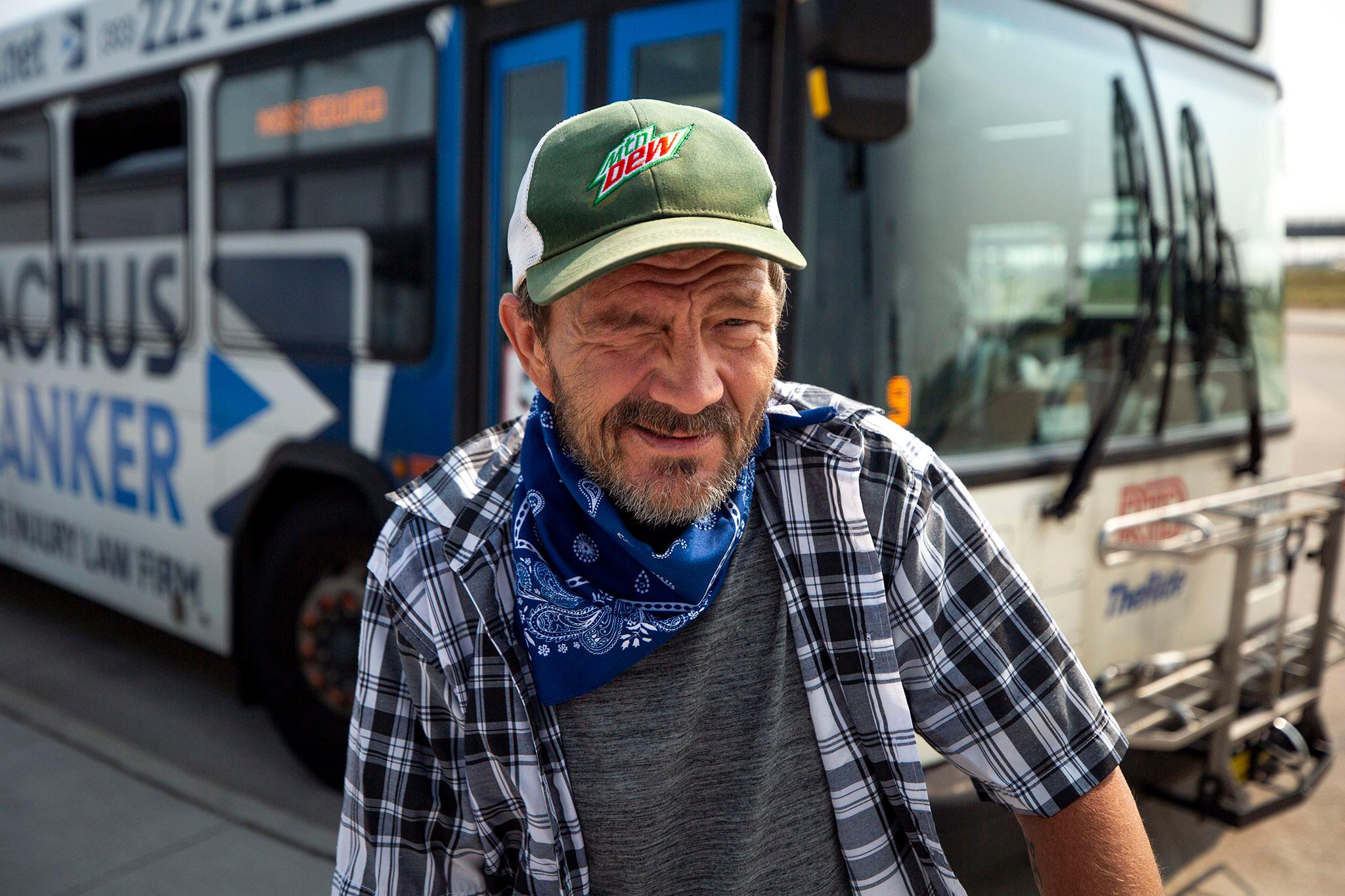
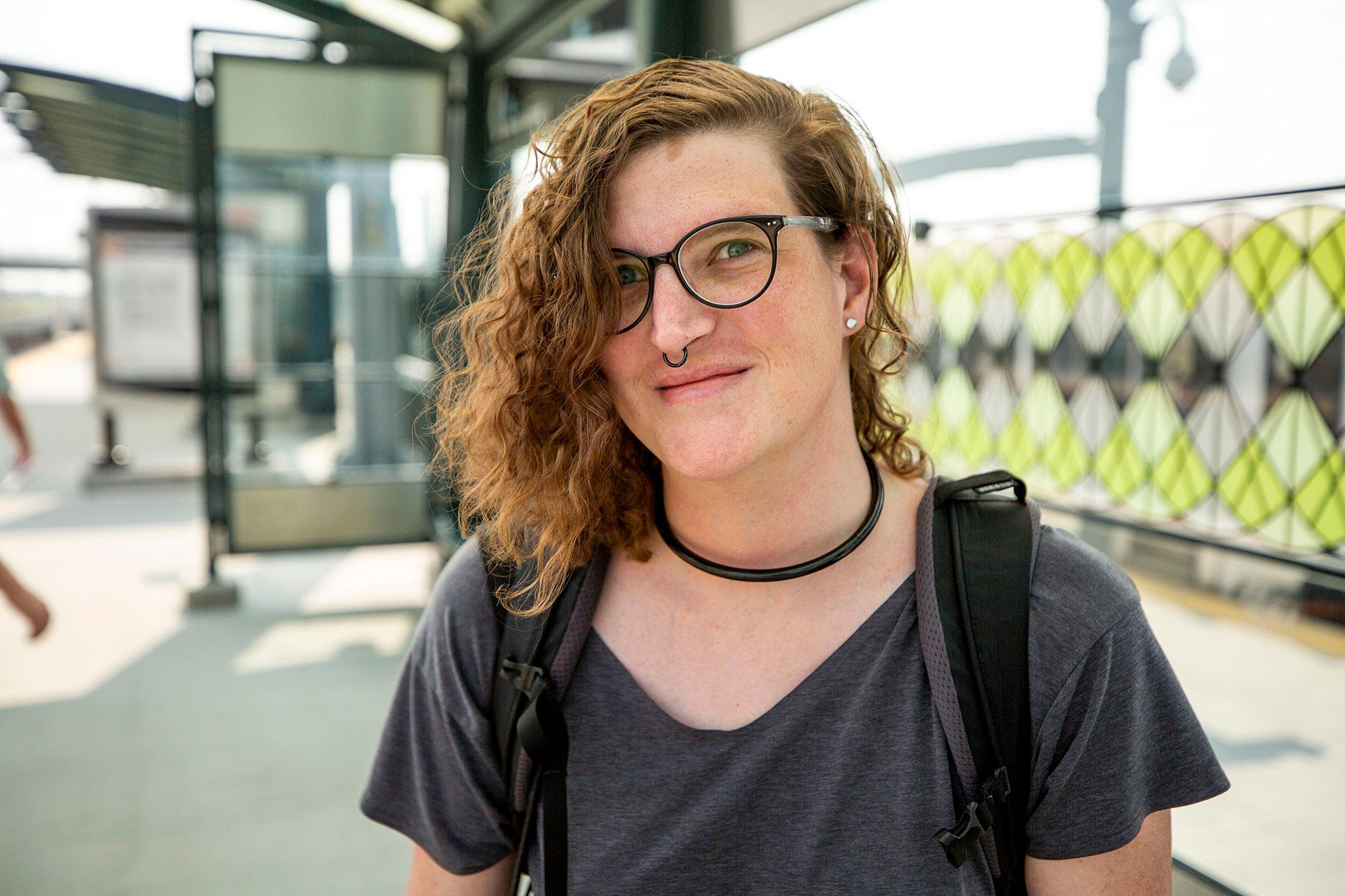
Meanwhile, some city council members including City Council President Stacie Gilmore, who represents Montbello, expressed concern over the transportation department's outreach methods, which she saw as not extensive enough.
Rijo said the planning was done mostly in the heat of the pandemic and that physical distancing made acute outreach difficult, so planners interacted mostly with groups who represented residents like Montbello 2020, Colectiva Creando Cambios en Colorado, and Conectoras de Montbello.
"It was more of 15 key stakeholders who were rather involved and represented networks in the community and less intercept surveys or things like that," Rijo said.
Gilmore also wants the pilot to run for two years, but Rijo said the funding isn't there.
"It's gonna take a year for us to get the word out to the community and encourage participation," Gilmore said during a transportation committee meeting on Tuesday.
The City Council helps form Denver's budget and has the power to fund programs like this.
A contract for the program will return to the transportation committee next week.
Correction: We updated this story to accurately reflect Coral Moody's pronoun preferences.

